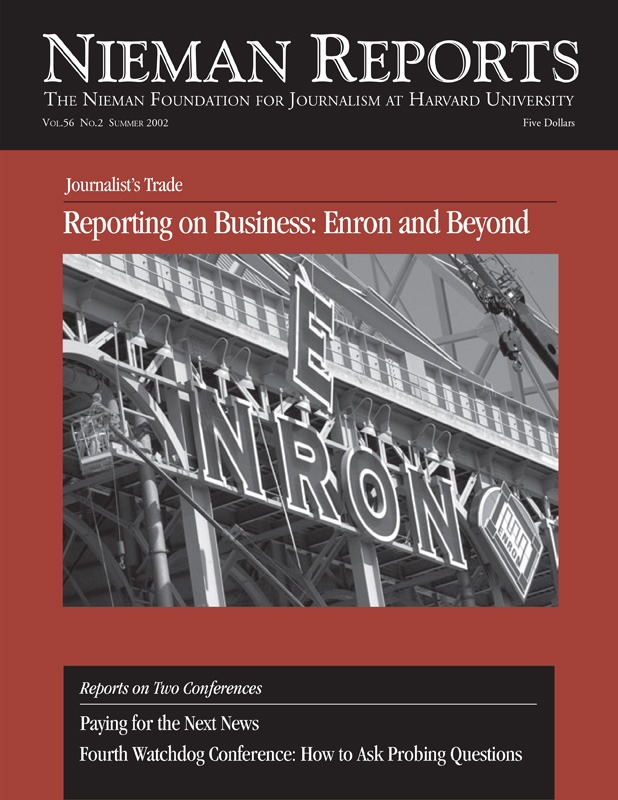ISSUE
Summer 2002

Reporting on Business: Enron and Beyond
Enron’s extraordinary collapse leapt into public view with banner headlines befitting the precipitous fall of a once mighty power. This was a company that not too long before its demise had been the business media’s poster child, praised for its “innovative” practices and consistently listed among the top American corporations. During these heady times, only a few reporters followed leads that eventually took readers past the media’s mostly laudatory words and into the reality of a company whose foundation was crumbling. – Melissa Ludtke, Editor